'A Killing on the Cape': The Murder of Christa Worthington -- Episode 4
Christopher McCowen was in bed in April 2005, when police knocked on his door.
— -- An encore presentation of this "20/20" report will air on Friday, Dec. 28, 2018, at 9 p.m. ET on ABC.
This is Episode 4 of "A Killing on the Cape," a six-episode ABC Radio podcast and an ABC News "20/20" documentary. Watch the two-hour "20/20" documentary HERE
For Episodes 1-3, please visit http://abcnews.com/akillingonthecape.
Subscribe and listen to the podcast on our partners and platforms: Apple Podcasts, Spotify, Google Play Music, TuneIn, Stitcher and under the "Listen" tab on the ABC News app.
Episode 4: The Garbage Man –
Christopher McCowen was in his bed on a Thursday evening in April 2005, when Massachusetts state police officers came to the house he was living in on Cape Cod and told him that he going to the state police barracks on the lower Cape.
Police gave him some shoes and a sweater, then put him in handcuffs, walked him outside and put him into the back of an unmarked police car.
McCowen was 33 years old at the time, and he had just been arrested for the highest-profile case to hit Cape Cod in decades. State police filmed him being led out of the house.
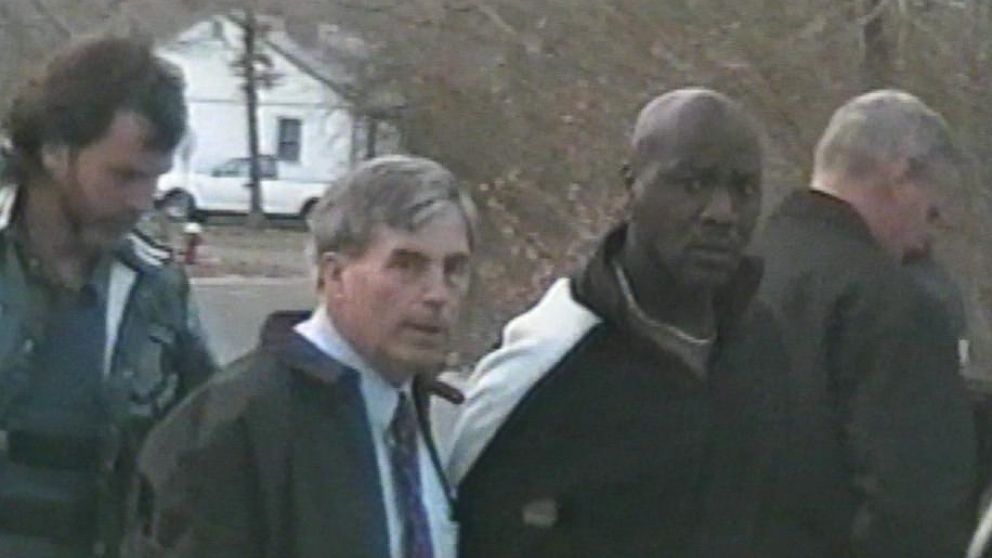
“I remember seeing the film of him being brought out of his house and he was just completely lost,” said McCowen’s former attorney, Bob George. “It was almost like he was in his pajamas… and he was stumbling towards the car, and this is immediately leading up to the so-called ‘interview.’”
George said he remembered seeing the arrest on the news.
“It was big news at the time, that they finally had an arrest, like any prosecutor’s office would announce that they’ve solved a cold case,” George said. “Because it was a cold case.”
By then it had been three years since Christa Worthington, a 46-year-old fashion writer and single mother, had been found stabbed to death in her home in Truro, Massachusetts, with her 2-and-a-half-year-old daughter, Ava, by her side, unharmed.
Investigators had looked at Ava’s father, Tony Jackett, who had an affair with Worthington that resulted in the child, as well as Worthington’s ex-boyfriend Tim Arnold, who found her body, and Worthington’s father, Christopher “Toppy” Worthington and his girlfriend, Elizabeth Porter, but all those leads didn’t go anywhere. Eventually, in a controversial move, investigators asked all of the men in the Truro community to voluntarily submit DNA samples to try to find the killer.
But in all that time, they hadn’t been able to make an arrest until that April night.
Investigators had collected lots of evidence from the crime scene at Worthington’s home on 50 Depot Road – hairs, fibers, blood samples and more. The most important pieces of evidence were saliva and semen found on Worthington’s body from a single unknown male, and when investigators realized they had a DNA match on that to McCowen, he was arrested within days.
“When an arrest was made, we were stunned, especially since the person who was arrested was not anybody we had ever heard of,” said Amalia Barreda, who was a reporter for ABC’s Boston affiliate WCVB-TV at the time and covered McCowen’s trial.
McCowen's arrest was surprising not just because he had never been brought out publicly in the investigation before, but also because he happened to be one of the few black men in the community, and Worthington was a wealthy white woman, which ignited controversy and left some questioning to this day whether McCowen received a fair trial.
Christopher McCowen was born in Oklahoma in March 1972. His father, Roy McCowen, printed newspapers for a living in Tulsa, while his mother lived in Frederick, Oklahoma, about 200 miles away, tucking just above the Texas state line near the panhandle.
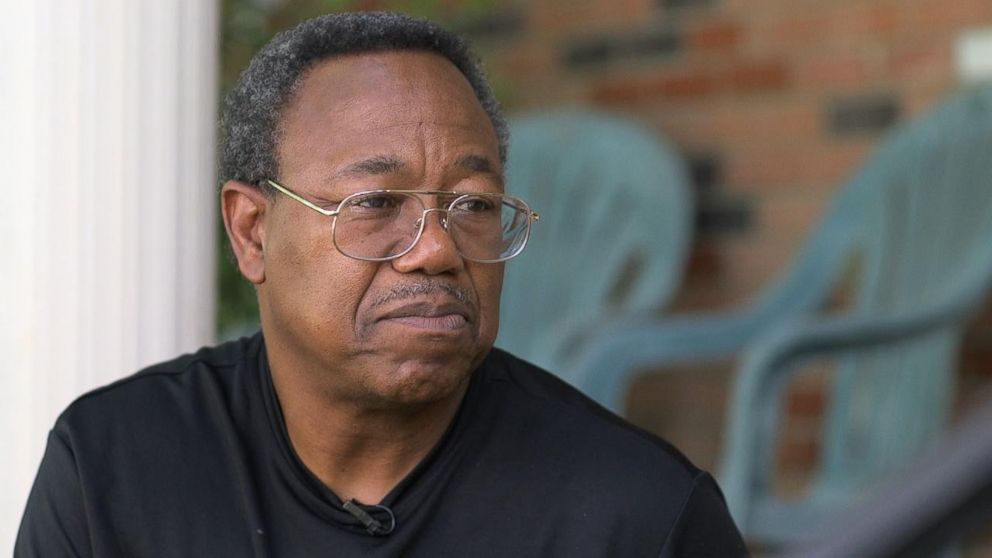
On the day Roy McCowen found out he had a son, he said, “My sister called me and said that I needed to come home and ‘I got this little boy here,’ and this girl said it was my son."
"I had been dating Chris's mom off and on for a while,” Roy McCowen told ABC News. “I went home and there he was in the bassinet and he looked up at me as if he said, ‘Hey, Dad.’ And so from that day on, it’s been me and him.”
Roy McCowen left the newspaper and joined the military not long after Chris was born. The decision brought him closer to his son because he was stationed at an air force base not far from Frederick. Roy said for the next three and a half years, he saw his son about four times a week.
McCowen said Chris needed a lot of medical attention when he was young because he suffered from seizures.
“He would have them and at that present time, he’s null and void,” Roy said. “He doesn’t speak and his eyes are up in his head and he doesn’t have any feeling of anything, he’s just in a state.”
Roy McCowen said doctors suspected Chris may have fallen off the bed and hit his head as an infant, which then caused him to have the seizures, though Roy said "there was no evidence that had happened."
Chris’s seizures made raising him difficult because he needed constant care, Roy said, and the children’s hospital where he would receive treatment was 120 miles away from Frederick, so Chris ended up going to live with his paternal grandmother.
“My mom had a huge house and he always had his own room,” Roy McCowen said. “She has a garden. She always sold garden vegetables and things, and so food-wise, he always had plenty of that, and he always had clothes and things. So my mom, she pretty much raised him.”
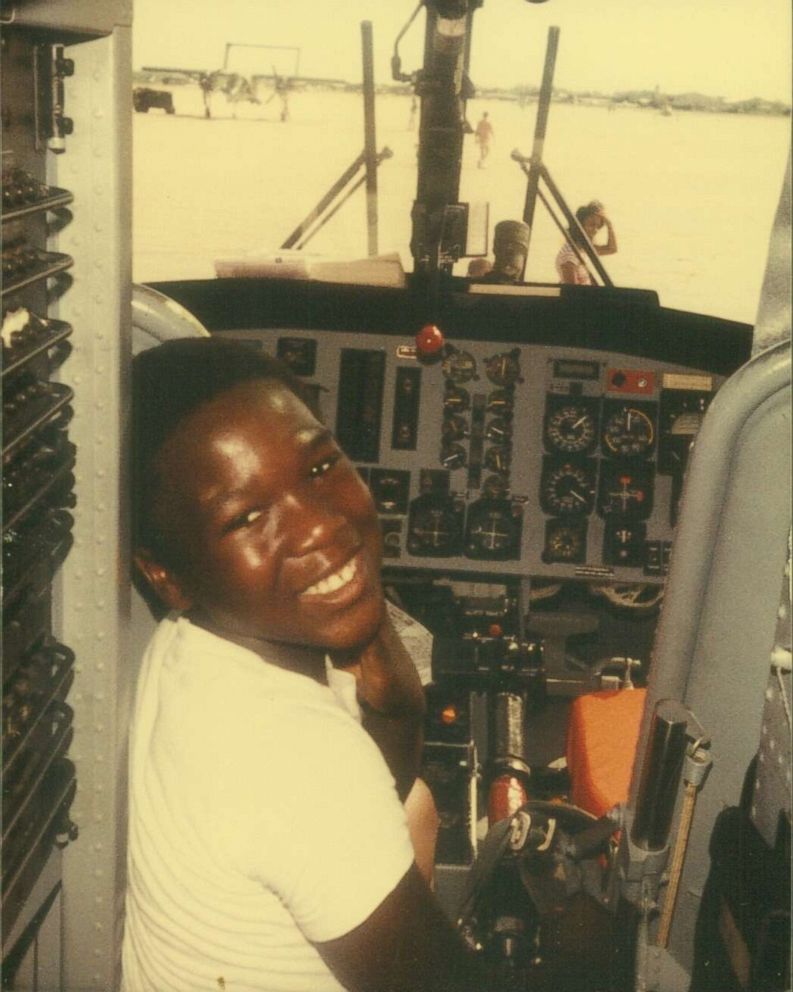
Roy McCowen said Chris outgrew his seizures by the time he was about 13 years old, but by third or fourth grade, "he was really having some difficulties.” His son was a big child who excelled at sports, particularly football, Roy said, but he started to fall behind – something Roy thinks was the result of the medication Chris was taking for his seizures.
“As long as he knows the work, they say, ‘Chris is great,’" Roy McCowen said. "But the minute the work gets above him, he just wanted it all to stop… he wanted disruption. I would always get called back to the school, ‘your boy done this, your boy done that.’”
Chris McCowen was placed into special education classes, which his father said didn’t further his education, and Chris ended up dropping out of high school by his senior year.
He had also started getting into trouble as a teenager. Roy McCowen said he had been relocated to Key West, Florida, by then, but Chris was still living in Oklahoma, and got into what Roy called “juvenile trouble,” such as stealing checks from his grandmother and once for staying out all night.
“Chris was a 15-year-old, you can’t just leave and not stay or spend the night somewhere else… that’s before cellphones,” Roy McCowen. “He didn’t rob a bank or a jewelry store or something, so he was doing petty stuff.”
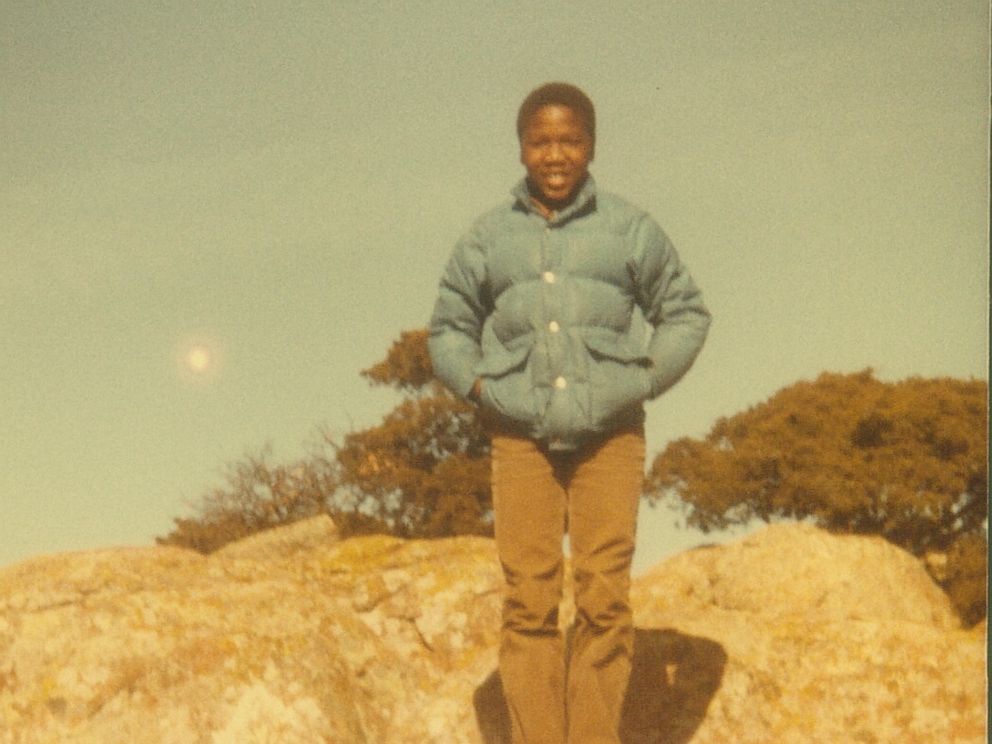
Chris McCowen eventually went to live with his father in Florida, but trouble followed him, including a conviction for grand theft that put him behind bars for about a year and a half between 1993 and 1994. Roy McCowen seemed to chalk it up to Chris being at the wrong place at the wrong time.
“We’re in Key West.… one of Chris’s friends stole a moped, he stopped by to pick Chris up and Chris is riding with him on the moped,” Roy said. “But Chris being 18 years old and the kid being 16, Chris got charged because he was the adult.”
During his years in Florida, Chris McCowen's criminal record grew, including a stolen property conviction. Roy McCowen said not long after his son got out of jail in 1995, Chris left Florida and moved to Cape Cod. Roy said he did it to be closer to an ex-girlfriend, Pamela Maguire.
Chris McCowen and Maguire had met in Florida and had a daughter together. After Chris got in trouble, Roy said Maguire left Key West to move back to Cape Cod, where she was from originally, and Chris followed her up there after he got out of jail.
"Chris was in love with Pam, so Chris caught the bus when went to the Cape to be with Pam," Roy McCowen said. "He found a job with the sanitation company. That was excellent, that was ideal. They have him a truck so he was ... able to function."
On the Cape, Chris McCowen made a living working as a garbage man for Cape Cod Disposal. Matthew Salamone was McCowen's coworker there, and said McCowen trained him on the trash routes.
"What the company does is, they have scheduled routes for summer homes,"Salamone said. "The homeowner will set up an account to have pickup however many times a week that they deem necessary for their renters and we go around and pick up their trash.
During the winter months, basically we did the same job, but it was not as busy of a schedule," he added.
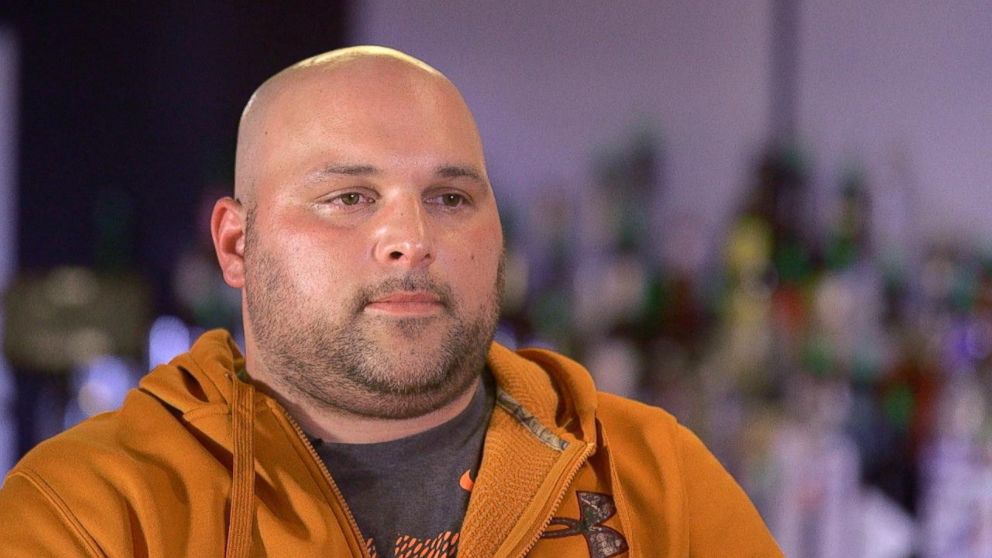
Salamone said for two years, he lived in an adjacent cottage to McCowen that was owned by the owner of Cape Cod Disposal, Don Horton, and said the two of them were very close.
"We hung out all day at work, all day after work," Salamone said. "He didn't have much family on the Cape. His family was from out-of-state, so he became a member of my family. He called my mom, 'Mom.' He would be at all our holiday dinners. We was always welcome in our home.
When you live in a desolate area, where there is not much going on, you have to entertainment yourself," he continued. "And living with Chris was entertainment."
But being a black man on the Cape, Salamone said, made McCowen stand out. In 2000, Barnstable County, which makes up Cape Cod, was more than 94 percent white, with less than 2 percent black residents. Today, there are still less than 2 percent of black residents there.
"His stature was not descriptive of who he was," Salamone said. "He was a very big, strong man with a very sensitive funny side to him."
Salamone said McCowen was a "prankster," who joked around and had a lot of respect from his fellow employees and their boss, Don Horton, who hired McCowen.
"Chris must have seen that sign, 'housing available,' and that's what excited him about getting a place to stay," Horton said. "But they had to work for me... I just had housing for people who worked for me."
When he hired him, Horton said he paired McCowen with someone else who could teach him the routes that he would be doing that summer.
"Chris was very willing to do whatever I asked him to do," Horton said. "I think he was well liked by many of the people on his route."
Both Horton and Salamone said McCowen had a good rapport with the residents along his route, which included Christa Worthington's house at 50 Depot Road.
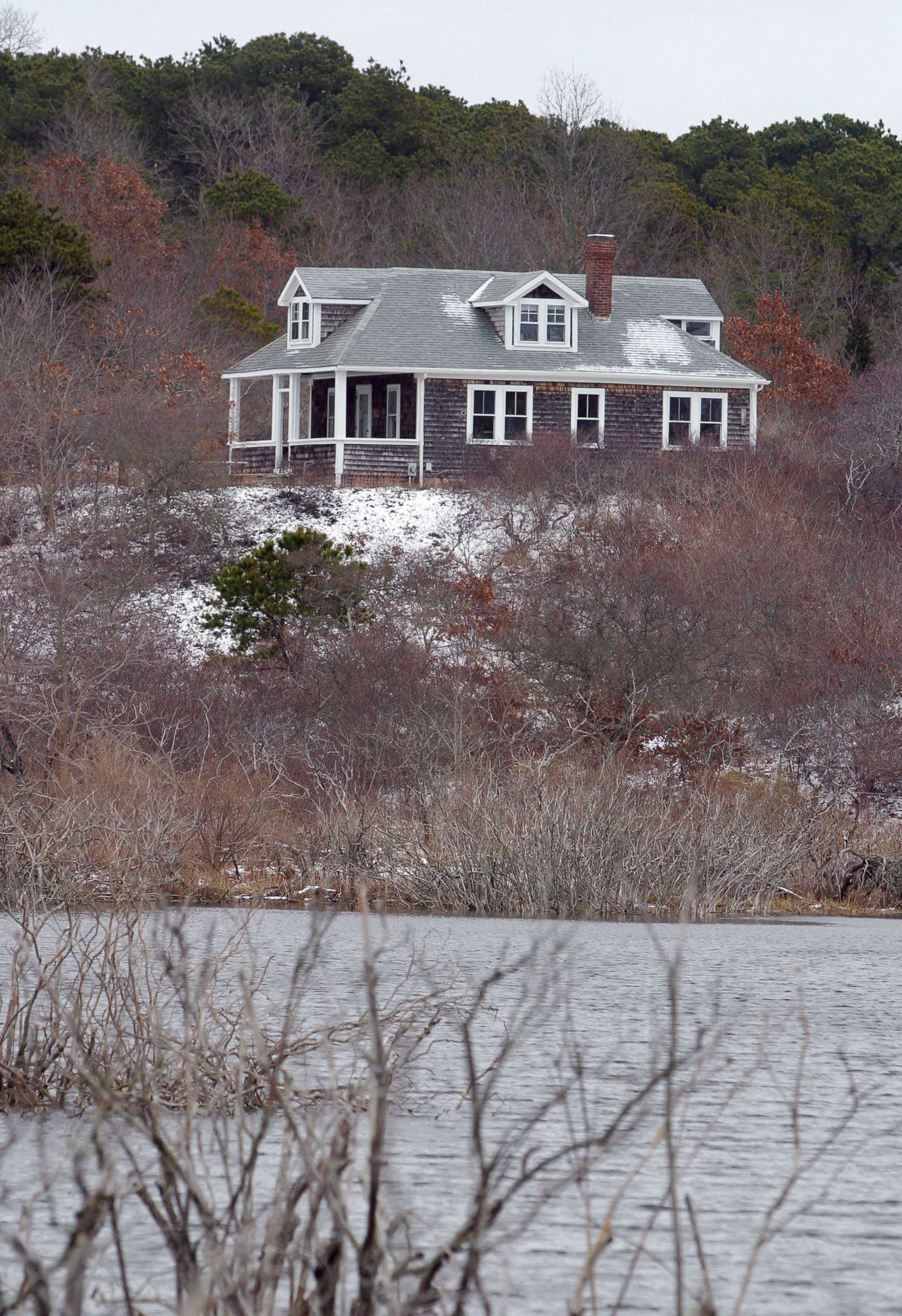
By the time McCowen began working at Cape Cod Disposal, he was no longer dating Pamela Maguire, but was instead involved with a woman named Kelly Tabor.
McCowen and Tabor began dating in 1998 and also had a daughter together, who was born in 2000. They lived with McCowen in the cottage he rented from Horton.
This didn't stop McCowen from fooling around with other women, though, Salamoni said.
"I knew many of Chris's girlfriends," he said. "Chris just had a weakness for women who were attracted to him. Chris had a lot of woman juggling going on."
McCowen's father also said his son was somewhat of a player.
"Chris is athletic and [they] see Chris as just a stud muffin, as they call them," Roy McCowen said. "He liked that. It feeds the need that he has inside of him.
Chris is like electricity," Roy continued. "Take the path of least resistance, you know what I'm saying? Chris would be in places where some women wouldn't resist him, would embrace him."
According to Chris McCowen himself, his escapades with women even included some on his trash route on the Cape, and he had a number of consensual relationships.
"When you're working for the company that Chris and I worked for, you're seeing the same people two or three times a week, every week," Salamone said. "You talk to the same people, you get to know them."
And one of the women McCowen said he hooked up with on his route -- Christa Worthington.
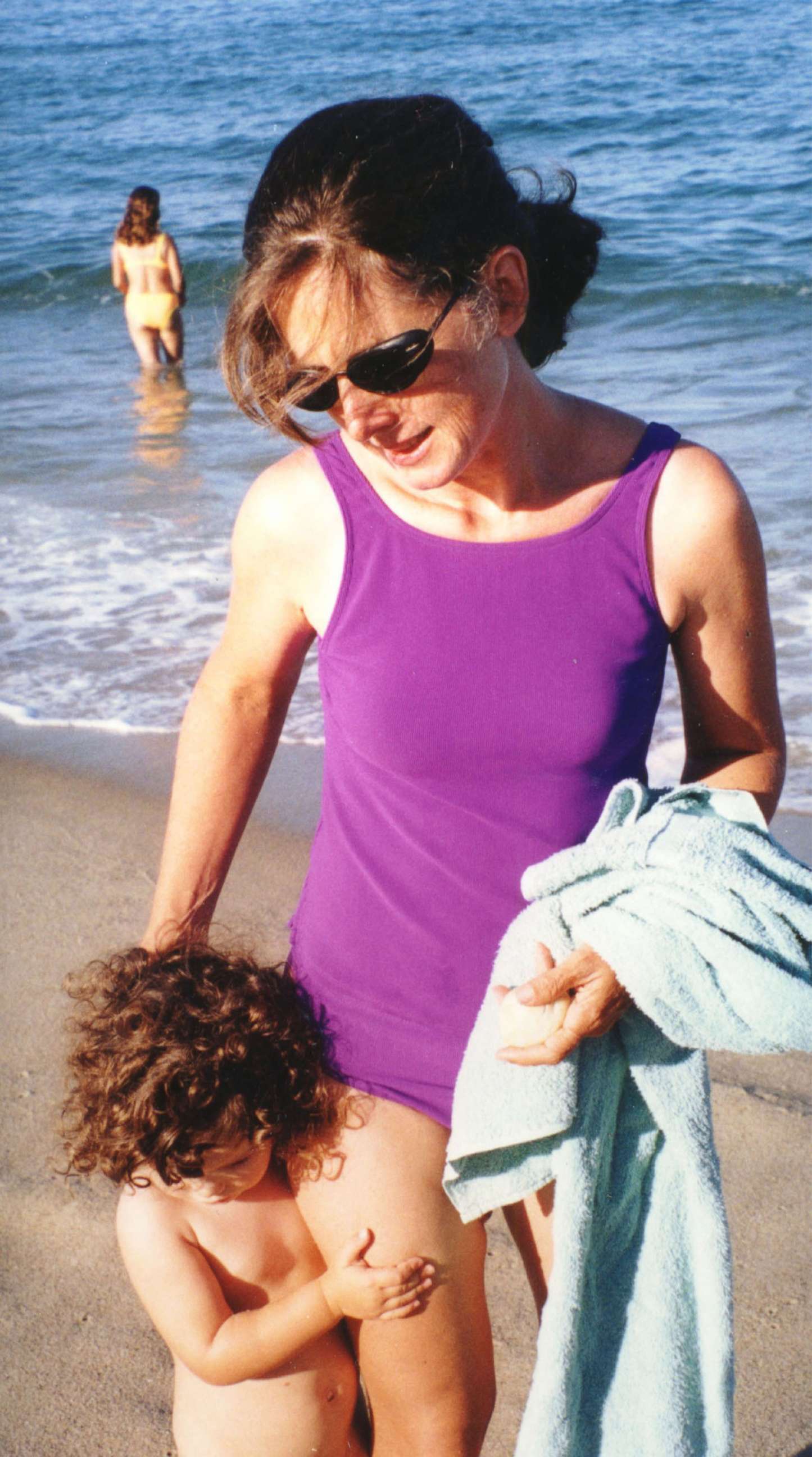
And police did speak with him early on in their investigation into her murder.
On April 3, 2002, State Trooper Christopher Mason and Sgt. William Burke interviewed McCowen because he was Worthington's garbage man.
ABC News consultant and former FBI profiler Brad Garrett says the investigation would naturally look at anyone who had access to or reason to be at Worthington's house.
"When you look at Christa Worthington's homicide, it just screams of, 'this is an intimate murder,'" Garrett said. "So using that as a template, you're going to have to eliminate basically all boyfriends and all people who have regular contact with her."
First, Trooper Mason and Sgt. Burke spoke with Horton, who told them Worthington had been a customer of his since 2000 and that her regular pickup day was on Thursdays. Then they spoke with McCowen.
According to the police report, McCowen said he would pick up Worthington's trash from a wooden bin near her house.
They asked McCowen if he had ever removed anything from inside the home or her porch. McCowen said he didn't and said that he didn’t know Worthington. McCowen said he didn't know anything about Worthington's murder, just what he had seen in the news.
Mason and Burke told him they may need his fingerprints and a DNA sample in the future, and McCowen said it was no problem. That was the end of the first interview.
"He volunteered his DNA and fingerprints... but they didn't take it at that time," said Beth Karas, an attorney and reporter who covered McCowen's trial for Court TV. "[McCowen] wasn't fleeing. He wasn't hiding. He's volunteering his DNA. He didn't act like somebody who was guilty of this."
Those who know McCowen -- his father, his employer, his coworker and friends -- paint a picture of him that is similar to what his defense used at his trial.
His father Roy McCowen liked to call Chris a "follower," who was a ladies' man that liked to flirt with women, but never seemed to take rejection personally. They said he is a high school dropout with low intelligence and that his checked past doesn't mean he was capable of murder.
"The single fact of her [Worthington] death, that somebody hated her so much that they stabbed the knife all the way through her body and stuck in the floor, that's rage," Roy McCowen said. "Chris being a lover... that wasn't the kind of hate that he had."
Salamone said as long as he has known McCowen, he never saw any violent side from him.
"And I have seen many, many sides of Chris," he said. "We were inseparable for over two years, worked together, hung out together. I've never seen him in a fist fight with a man. I've never seen him raising his hands to a woman. As far as I'm concerned, Chris has no violence in him."
But as police kept hitting dead ends in the Worthington investigation, they eventually circled back around to McCowen two years after her death. This time, they had come to see him in a much different light.
It was March 2004 when investigators decided to talk with McCowen a second time. By that point, they had done a more extensive background check on him and it raised red flags. They knew about some of McCowen's past convictions, but they also saw a number of restraining orders that had been filed against him in domestic disputes.
The first restraining order was filed in 1998 by Pamela Maguire. In her affidavit, Maguire said she was afraid of McCowen because of what had happened in the past. She claimed McCowen had pushed her against the refrigerator, intimidated her, had thrown at TV remote at her and thrown the coffee table.
A year later, in 1999, an ex-girlfriend named Amy filed a restraining order against McCowen, claiming he shattered the window of her car.
A woman named Laurie Mayhood also filed a restraining order against McCowen in 1999, which she said stemmed from the night when her then-16-year-old daughter Katie ran away from home.
"She was at a point in her life where she did not want to be home. She wanted her freedom," Mayhood told ABC News. "She had friends, she wanted to be on her own."
Mayhood said Katie had become friendly with McCowen, who was 26 years old at the time, after the two met at a local Dunkin Donuts, where she worked.
One night, Mayhood said Katie ran away from home and ended up spending the night at McCowen's house, which worried her so she called the police, who went searching for her.
"They came back and told me that she had been picked up hitchhiking by a vehicle," Mayhood said. "They found her the next day in Christopher's apartment."
After the police brought Katie home, Mayhood said they advised her to take Katie to the hospital to have her examined and have a rape kit tested to see if there had been any sexual activity between them.
"When we got the results back, they were negative, so we knew there were not any of that going on," Mayhood said. "So I went back to the police, and I said, 'Where do I go from here?' And he said, 'You need to go get a restraining order against this guy to keep him away from your daughter.'"
Katie claims the night she stayed with McCowen was an innocent evening, and that all they did was watch movies until 2 a.m.
"And I fell asleep and got up and went back home the next morning," she said.
Katie said McCowen was very kind to her and was "100 percent" a "gentleman." She said her first impression of him was that he was "caring, very generous, very polite, never seemed mean or rude."
"Christopher never once disrespected me in any way, never once has he ever made an unwanted pass at me," Katie said.
Mayhood says the restraining order was a tool to keep her daughter away from McCowen, but she said she didn't think McCowen was violent nor capable of murder.
"I needed the restraining order in order to enforce my daughter not to go back to that place," Mayhood said.
Mayhood even said she now believes McCowen let her daughter stay with him to keep her safe the night she ran away, because otherwise he knew she would have been out hitchhiking.
"She needed to be in safe place and his house was a safe place," Mayhood said. "He did not touch her. He did not have sex with her. He simply picked her up and took her to his hosue for the night and kept her off the streets for the night."
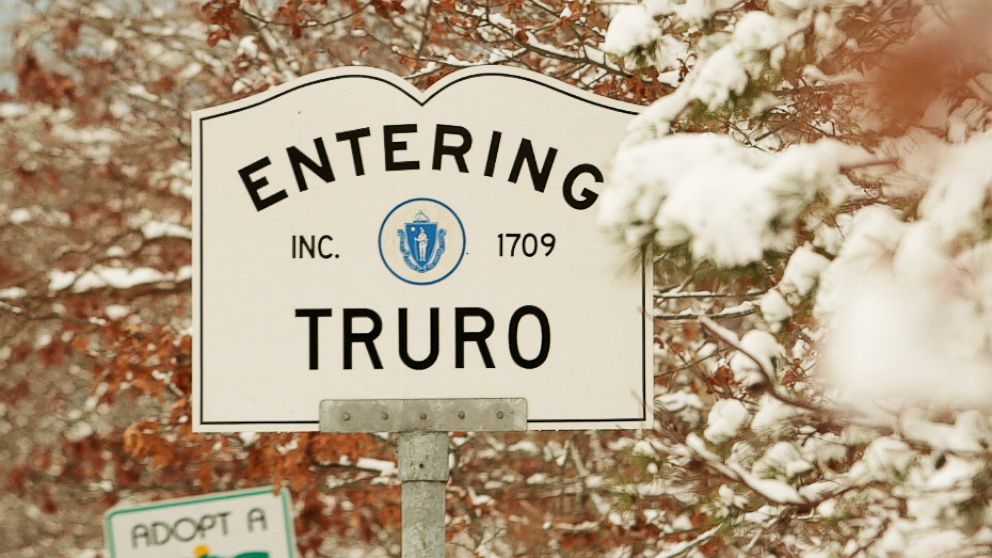
When she heard McCowen was arrested for Worthington's murder, Mayhood said her immediate reaction was that he didn't do it.
"He was too mild-mannered, he was gentle, he was friendly, he was outgoing," she said. "There was no reason to think this man was a murderer."
But in January 2004, two months before investigators came to talk to McCowen a second time about Worthington's death, McCowen had another restraining order filed against him.
This one was from Kelly Tabor, his former girlfriend, the one he was dating at the time of Worthington's death and the mother of one of his two daughters.
In her affidavit, Tabor claimed she and McCowen got into a fight one evening and that he threatened her, saying, "If you say one more word, I will snap your neck." She called the police and McCowen was taken to jail. He was eventually sentenced to probation for making domestic violence-related threats.
But like Laurie Mayhood and her daughter Katie, Tabor too now says she regrets getting a restraining order against McCowen. Tabor declined ABC News' requests for a formal interview, but said she did not believe McCowen was violent nor capable of murder.
Pamela Maguire also told ABC News that she regretted getting one against him.
"People take out restraining orders against significant others because they're mad," said former FBI profiler Brad Garrett. "They're mad they didn't get child support, there's something about the relationship that they're just angry about, and so they use the police and the justice system to go after somebody.
That's not to suggest that people shouldn't go get restraining orders," Garrett continued. "I'm only suggesting that if you're investigating a case that's a homicide, for example, and people have made all these allegations about physical altercations, you've got to figure out exactly, 'Well, what does that mean?'...and you interview them."
But at the time investigators were searching for a suspect in the Worthington case, McCowen's arrest history and the restraining orders from women he used to be romantically involved with didn't look good. Garrett said McCowen's arrest history would have made McCowen stand out against the other plumbers, electricians and other routine visitors who would have come to Worthington's home, in part because it showed he was capable of getting physical.
When investigators went to re-interview McCowen in 2004, he was no longer working at Cape Cod Disposal. They ended up speaking with him on March 18, 2004, during a meeting he was having with his probation officer.
A police report from McCowen's second interview said investigators reviewed what he had told them before and it was more of the same -- that he didn't know Worthington, and had on seen her around her house. He said he had never been inside her home.
Investigators told him that sperm had been recovered from Worthington's body, so they asked again if he was willing to submit a DNA sample. Just like before, McCowen said he was willing to and police took a swab of his mouth.
Detectives didn't know it at the time, but they had just collected a match for their most important piece of forensic evidence. But it would be another 13 months before they arrested him.
After collecting McCowen's DNA, the sample was among the many that sat waiting for testing as the Massachusetts state crime lab that faced a backlog. In fact, McCowen's sample was taken 10 months before police held their controversial DNA dragnet, where they asked all of the men in the community to voluntarily submit DNA samples, bringing another 150 to 200 samples.
But on April 7, 2005, three years into the investigation, the state crime lab told Trooper Mason they had gotten a match on the DNA found on Worthington's body.
The official lab results came in six days later. Trooper Mason and Sgt. Burke arrested McCowen the next day on April 14, 2005, at a house McCowen was living at the time in Hyannis, a town on the southern end of the Cape.
District Attorney Michael O'Keefe announced the arrest on the 15th, making national headlines and drawing questions about the delay. O'Keefe told reporters they weren't able to process McCowen's sample more quickly because of the backlog at the crime lab.
The detectives handcuffed McCowen and brought him to state police barracks in South Yarmouth, about 20 minutes away.
Seated in a conference room, police read McCowen his Miranda rights, and told McCowen he had the option to waive these rights. He agreed and signed a waiver form. According to Mason's report, they also asked McCowen for consent to record their conversation, which Mason's report says McCowen declined.
What happened next was a six-hour interview that, along with the DNA evidence, would play a key role against McCowen at trial.
There are no audio recordings or interrogation tapes of McCowen's interview with police after his arrest. The roughly six hours police spent with him were instead summarized in a 27-page report written by Mason.
According to Mason's report, McCowen's story – as it was told to police -- began as their other interviews had, with McCowen telling them he didn't know Worthington. Investigators asked him what type of person he thought could have committed the crime. McCowen said he didn't know, but that the guy who did it must have been "drunk or stupid." When asked why, the report said McCowen told investigators that police in Florida had called him a smart criminal, and that if he had killed Worthington, he would have made sure that she was alone and that her child didn't see anything.
Then the report says detectives told McCowen they had DNA evidence from Worthington's body, something McCowen said is another thing that showed the guy who did it was stupid. Then detectives handed him the report from the state crime lab that showed the match was to his DNA.
Trooper Mason later testified at McCowen's trial about the moment he gave him that crime lab report.
"Mr. McCowen then stated, 'It could have been me,'" Mason testified.
Mason said he asked McCowen what he meant by that, and said McCowen stated that he said he could have had sex with Worthington, but didn't remember because he was so drunk.
McCowen told detectives that Fridays and Saturdays were his party nights, and that the weekend Worthington was killed, he was with his friend, Jeremy Frazier, on Friday of that weekend, Jan. 4, 2002, at a local spot called The Juice Bar, an underaged club.
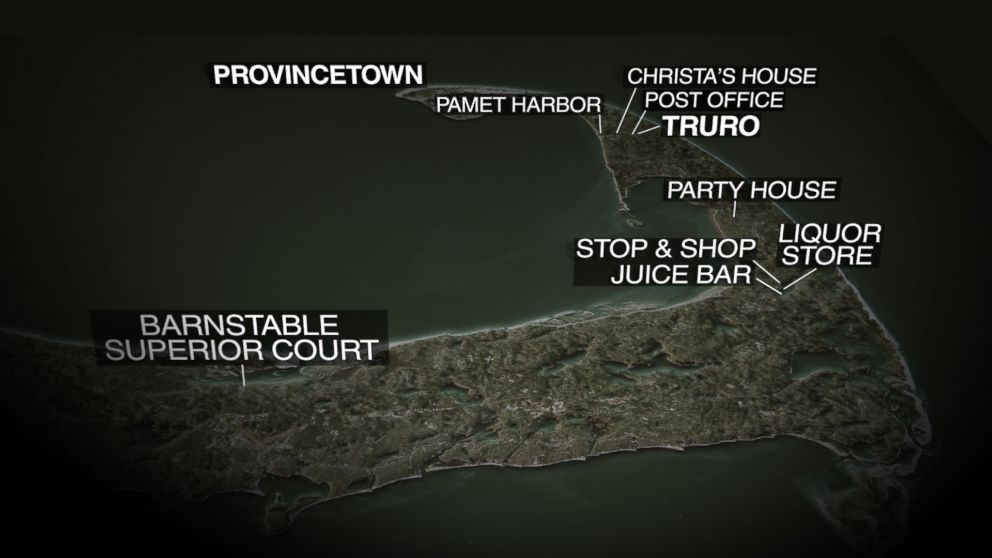
On that Friday night, two days before Worthington's body was found by her ex-boyfriend Tim Arnold at her home, The Juice Bar held a rap contest. Video footage from that night shows McCowen and Frazier were there.In the video, McCowen is mostly off to the side wearing a red and black sports jersey and holding a drink. Fraizer, who participates in the rap contest, is seen wearing a blue and white Nautica sweater and a blue baseball cap.

At the time, Frazier went by a few different nicknames. In the video, someone calls him "Blaze" at one point, but he was most well-known as "Wu" in honor of the '90s rap group, Wu Tang Clan.
According to Mason's report, McCowen told investigators that he was "already lit," drinking heavily, and that's all he remembers from that night. He said he didn't remember having sex with Worthington and woke up the next morning at home.
Mason pressed him to try and remember, though, and at one point McCowen said, "Honestly, I don't know. How do you want to remember anything?"
The report then said that McCowen again stated he blacked out at The Juice Bar. But as Mason pressed him to remember more, Mason wrote in his report that McCowen bowed his head and said that he had, in fact, had sex with Worthington. Again, he stated that he didn't remember everything and denied killing her.
The detectives told McCowen to go back over what happened that Friday night again, and then, according to the report, McCowen said he had Frazier drive him over to Worthington's so he could have sex with her, and that he didn't want to drive himself because he was afraid of get busted for drunk driving.
The detectives asked McCowen again to go over that night. McCowen then said he was at Worthington's house with Frazier and that he, McCowen, was having sex with her. They asked McCowen if he argued with her at all, and he told them he hadn't and that if someone tells him they're not interested in sex, then he was "fine with that."
They asked McCowen why he went to Worthington's house in the first place and McCowen said it was probably his idea and that he told Frazier he knew a woman in Truro he can have sex with.
They asked McCowen where he and Worthington had sex. He said in the hallway by the kitchen -- which is near where her body was found -- but he also said it could have been in her living room. McCowen then told detectives that after he and Worthington had sex, everything was "cool" and that he went home.
But then as police asked McCowen what time he got to Worthington's, McCowen told them it was between 1:15 and 1:45 a.m., and that everything was fine until, according to the report, Frazier started rummaging through Worthington's things.
During McCowen's trial, Mason testified that McCowen told him, "Following the sex, Christa Worthington confronted Jeremy Frazier about what he was doing in her office. He [McCowen] and Jeremy Frazier then left the residence and that Christa Worthington followed them out."
At which point, according to the report, McCowen told detectives that Worthington came out of the house, screaming at Frazier that she wanted her stuff back. He said Worthington ran back into the house and he could see she had the phone to her ear, and he told Frazier that he thought she was going to call the police. According to Mason’s report, McCowen told police Frazier then went after Worthington, kicked in the door and went inside. McCowen said Frazier then came back out and told McCowen he had beaten up Worthington.
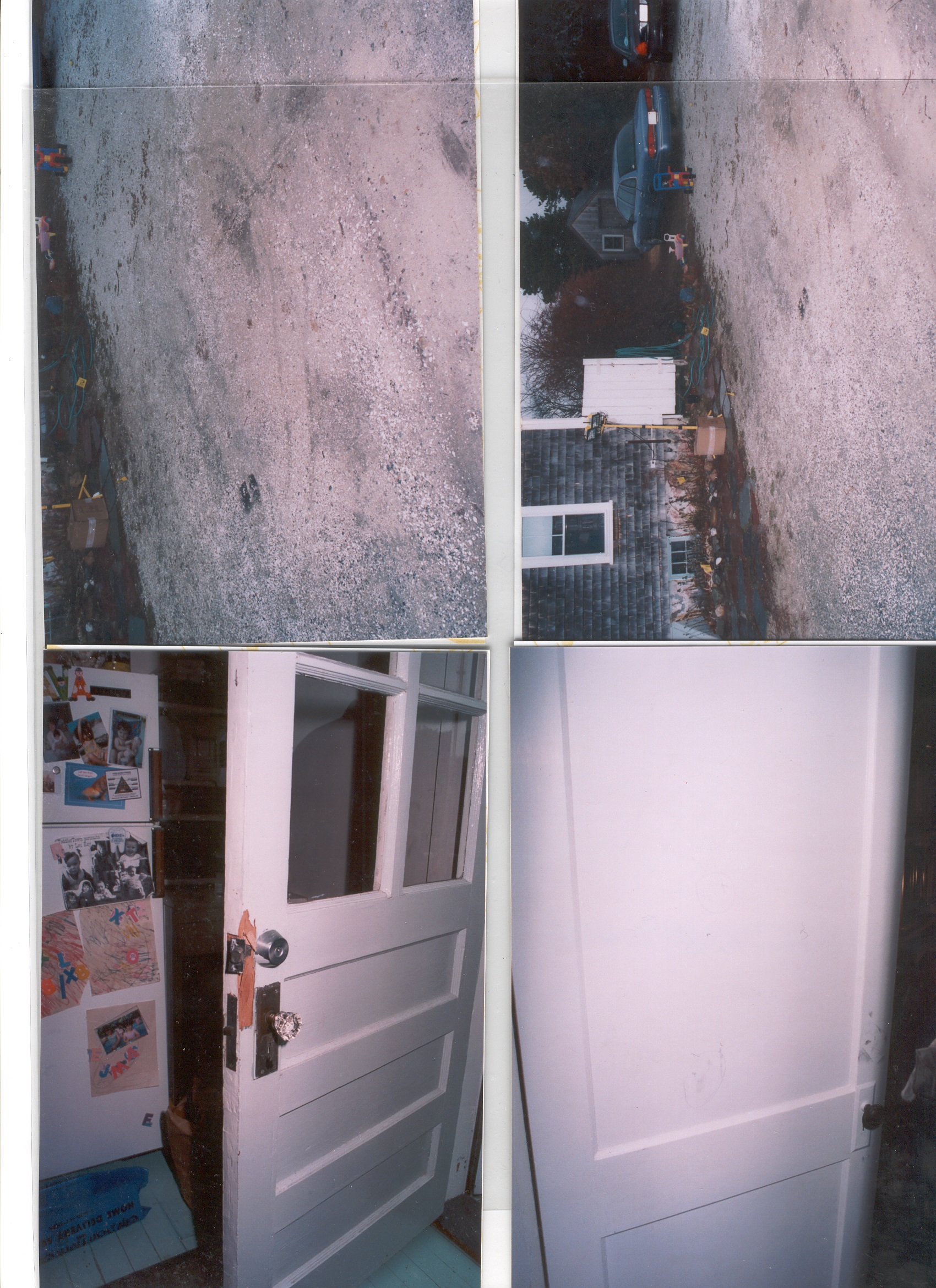
Trooper Mason and Sgt. Burke again asked McCowen to go back and retell it again. This time, McCowen said Worthington followed them out of the house and she was arguing with Frazier and that Frazier hit her twice in the face. McCowen said that's when Worthington ran back inside the house, but this time, McCowen said Frazier went after her saying, "I'm just going to do her."
McCowen said he waited outside and Frazier came out after 10 minutes, but then turned back and kicked in the door because, McCowen said, he thought "he was going to make it look like a burglary."
Mason and Burke pushed McCowen, saying he had more to tell them, Then, according to Mason’s report, McCowen said that after Frazier hit Worthington then he, McCowen, hit her too.
In retelling McCowen's statements at his trial, Burke said that McCowen told them, "She confronted Jeremy, that Jeremy beat her, he beat her. He said, 'We put the boots to her.' He said, 'I still can hear her hit the ground. She hit the ground hard.'"
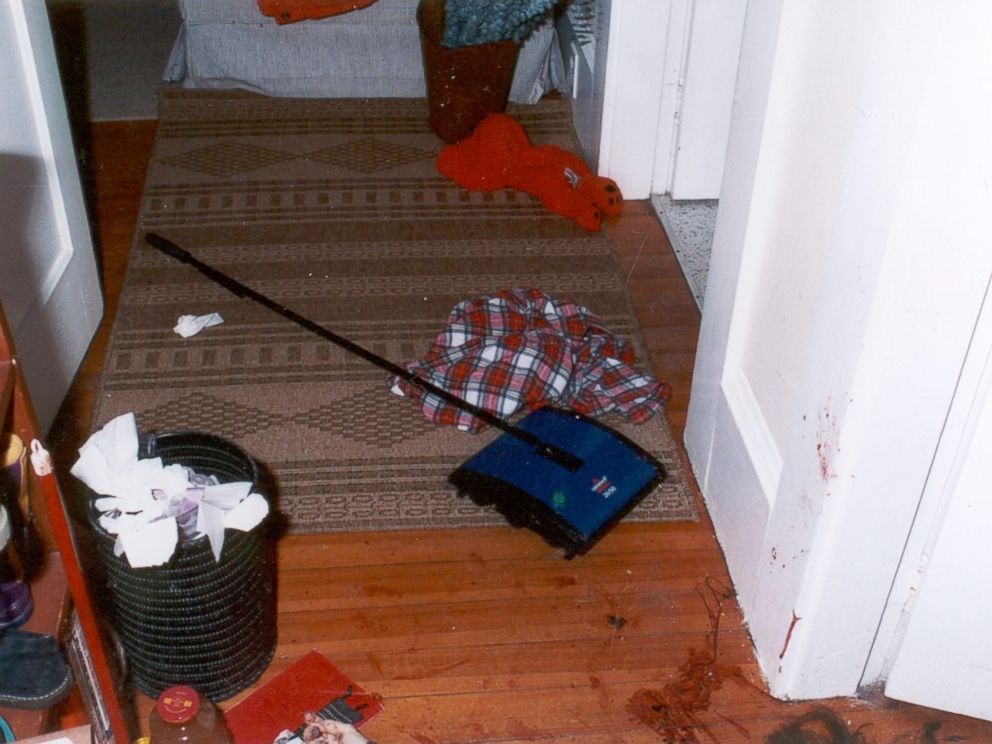
According to Mason’s report, McCowen said Frazier pulled a knife from the butcher block and he watched while Frazier stabbed Worthington in the hall by the kitchen. He said they left Worthington’s house and when they got in the car, Frazier had a purse, a phone and the knife wrapped in a black shirt. McCowen said he never talked to Frazier about what happened to those items.
The whole interview is a meandering tale that inches forward with more details arising each time Trooper Mason and Sgt. Burke asked McCowen to go back and start his story from the top. According to Mason’s report, they asked McCowen why would Frazier kill Worthington, and he said it was probably because she was calling the police.
Burke and Mason ended the interview a little after 1:30 a.m. on the night of McCowen's arrest. During the entire six hours, McCowen never admitted to killing Worthington, but at one point he said, "Yeah, I had sex with her, yeah I beat her ---, but it was Jeremy that stabbed her."
"You have all of those versions," former FBI profiler Brad Garrett said. "He changes the version, but he never put a knife in his hand."
Read Trooper Mason's 27-page report here:
During that interview, Burke told McCowen that many of the things McCowen described matched what they believed happened at Worthington's house the night she was killed. But Burke told him that he believed McCowen was alone the whole time and Frazier had never been there. McCowen then said, "Then it's all on me if Jeremy can account for his time."
Unbeknownst to McCowen, police had picked up Frazier and were interviewing him at the same time they were interviewing McCowen -- but Frazier had an alibi.
Frazier told police he had gone with his friend, Shawn Mulvey, who had also been at The Juice Bar that Friday night, to Mulvey's father's house and he had slept on the couch. Mulvey's father had been out of town that night. Mulvey also took part in the rap contest and appears in the video that also shows Frazier and McCowen.
According to police reports, Frazier told investigators that he and his friends left The Juice Bar that night and went to a party, and McCowen was there. Then there was a fight and everyone was kicked out.
But instead of leaving the party and going to Worthington's, as McCowen claimed he and Frazier had, Frazier told police that he left the party with Mulvey and crashed with him.
When police interviewed Mulvey the first time, he told them he didn't remember anything about that Friday night and hardly remembered Frazier. But when they talked to him a second time a few months later, Mulvey said he originally didn't want to get involved but was now backing up Frazier's account, that Frazier had been with him at his father's house that night.
Frazier denied having any involvement with Worthington’s death and denied going to her house with McCowen on the night in question. And police believed him.
Armed with a statement that put McCowen at the scene of Worthington's murder, DNA evidence that linked him to the body, and an alibi for the man McCowen accused of being the killer, McCowen was booked and charged with the murder of Christa Worthington.
But as McCowen went to trial, his defense started to push back on each of the state's pieces of evidence, they would raise questions about just how reliable his statement to police was when it wasn't recorded and McCowen has a low IQ.
"He was the type of person who could be easily misled and led down the primrose path by a certain type of interrogators or a certain type of questioning, because he aimed to please," said his former attorney Bob George.
As for the DNA evidence that linked McCowen to the scene, McCowen told investigators he had consensual sex with Worthington, and his defense would present a whole new possible scenario as to how that could have happened.
What if, his defense would propose, McCowen hadn't been at Worthington's house at all that Friday night.
"What Christopher McCowen said was that they had sex on that Thursday, on the night before the murder," said Gary Pelletier, McCowen's current attorney. "That he and Christa Worthington had consensual sex and she asked him no to talk about it, not to speak about it, and he respected her wishes."
This article is part of an investigative series by "20/20" and ABC Radio looking into the murder of Christa Worthington and the trial and conviction of Christopher McCowen. Watch the two-hour "20/20" documentary, "A Killing on the Cape," HERE and the six-part podcast can be heard on Apple Podcasts, Spotify, Google Play Music, TuneIn, Stitcher and under the "Listen" tab on the ABC News app.







